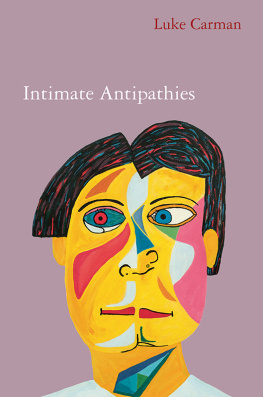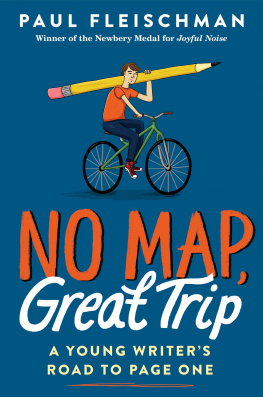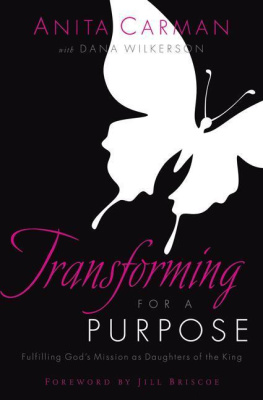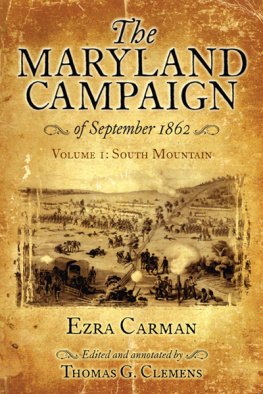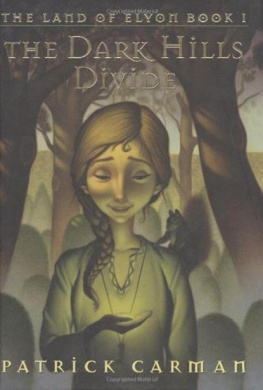Intimate Antipathies
Intimate Antipathies
Luke Carman

First published in 2019
from the Writing and Society Research Centre
at Western Sydney University
by the Giramondo Publishing Company
PO Box 752
Artarmon NSW 1570 Australia
www.giramondopublishing.com
Luke Carman 2019
Designed by Harry Williamson
Typeset by Andrew Davies
in 11.25/14 pt Garamond 3
Printed and bound by Ligare Book Printers
Distributed in Australia by NewSouth Books
A catalogue record for this
book is available from the
National Library of Australia
ISBN: 978-1-925818-12-3 (pbk)
All rights reserved.
No part of this publication may be reproduced, stored in a retrieval system or transmitted in any form or by any means electronic, mechanical, photocopying or otherwise without the prior permission of the publisher.
9 8 7 6 5 4 3 2 1
For Leroy
That writers write is meant to be self-evident.
People like to say it. I find it is hardly ever true.
Writers drink. Writers rant. Writers phone. Writers
sleep. I have met very few writers who write at all.
RENATA ADLER , Speedboat (1976)
Contents
MY BLUE INFERNO
I n the beginning I made the mistake of wanting to be what some people call a writer. This was a great disappointment to my father, who argued God had given him a handsome and well-formed child who ought to show his gratitude for those blessings by becoming a Kmart catalogue model. Many occasions were spent in my fathers kitchen, each of us leaning against the sink, poring over the winter range of plaid vests and bomber jackets, and he would slap the pages and say, What did I tell you! This could have been you! But it is the duty of every decent son to frustrate his fathers wishes, and as art and literature seek to teach us, homeopathic parricide is the path to self-discovery.
Refusing to deal with the strange vanity of the life my father had picked out for me, I spent my time with books instead, in the dim light of my room, prone on the bed, eschewing all other dimensions of life, with its flashing passions and its baser seductions. I lived a life of ascetic unreality, all the while consoling myself for the wretchedness of my condition, with the sanctimonious air of a zealot, that my destiny was to be an inhabitant of the richer realms of the imaginative plains and one day to be paid to write books in some squalid darkness, a room of my own and some fifty pounds and to remain a stranger to the trappings the normies on the streets outside would never quit their fretting over.
Of course this was the fever dream of navety. The literary world, as it has been revealed to me in snatches at author panels, at lectures in university chambers, in conversation with poets in empty auditoriums, and while sitting quietly in psychiatrists waiting rooms, is a public engagement, where the dim spotlight is always indifferently fixed, and the crowd around the gloom is made of pleasant faces and critics and other young writers who look on with a tame, cannibalistic attention. Its not so bad, not a heavy burden, but having met with some small success, I found Id soon acquired all the trappings of a normal life: a wife, a home, a child, and an amount of respect, all of which I had not the faintest idea what to do with once they had come into being. Having failed at avoiding life and all its accessories, having discovered my dream of a wretched hermitude was an illusion, some lodestar of my mind decided it was time to collapse, and I found myself suffering from an active case of going nuts.
Having since recovered, after taking my pills and walking the line for a while, I went with my friend Tom to a caf were poets were set to read, to celebrate being well again. People were knitting at tables in the dim candlelight, drinking wine and facing a microphone. I was drinking the wine in large gulps to avoid the taste, and several times before reaching my seat returned to the bar to have the glass refilled. I kept asking Tom if he could use another drink himself, but he was too busy fiddling with a packet of sugar and frowning at the poets on the stage, his red hair curled tight in the darkness.
This poem is about softboys, the short woman on stage, whose tattoo ran down her thigh like an oil slick into her socks, announced to the darkness. She began to read her softboy poem from a chapbook folded open in her hands, but the wine was making it hard to hear, and Tom was frowning so loudly, and my glass was empty.
At that moment, a great fat woman walking past the event with a lugubriously loose gait stopped before the glass of the caf front and plonked her head against it, peering in at us and holding up her hands like fleshy apertures. Other people continued to pass her by on the street, but she stayed there, her plump hands up to the glass, her heavy breath casting a halo of fog around her face, as the poet, oblivious to this distracting inquisition, continued to deliver her delicate internal rhymes.
Hey! The big strangers voice, booming through the glass cut across the poetry, What are you cunts doing? she demanded. A nervous giggle wormed its way through the dark room. The short poet was turned almost in knots with her paper and legs and head in an array of directions, frozen in uncertainty. The large woman, her dignity hurt by the laughter, lifted up her top, and slammed her enormous breasts against the window, swirling them about in a windmill motion she had doubtless deployed in other such scenarios, as she screamed Get a load of these! The atmosphere, as they say when a performance is elevated, was electric no one dared to breathe lest they miss a moment and as suddenly as it was done the woman bounced off the window and into the night, leaving a smear of circles behind, her great buttocks high and proud as she wrestled her showstoppers back under cover. With perfect timing, the audience still in their shock and awe, Fiona Wright, a famous poet who was sitting at a table in the back of the room, dropped the needle back into the event by calling out, and they say Newtown has gentrified!
Its hard to say what it was exactly that caused it, but something about this commotion inspired Tom to leave without saying a word, his head probably strained by the effort of frowning. Eventually the man at the bar refused to serve me, so I left too. I caught the slow train back to the mountains on my own, watching the blurred shape of Sydney unwinding its high-rises, the lights on top of cranes like little fires on a distant hill, watching the legs of people at the stations flash in and out of the train at each stop, listening to kids talk their new codes for old things, the smell of grease and sweat and wine in the carriage, all the way up into the quiet, empty mountain air, where my breath trailed beyond me up the stairs of the station and onto the street. I needed to see if it was too late to get a beer at the pub, my blood was beginning to lose its drink, and that awful throb of sobriety was building in my temples.
The pub was dark, the lights were on in the car park but the doors were barred. A tall man in a black jacket appeared, charging towards me from around the other side of the street. Gimme your fucking wallet! he demanded. I took a step back with my hands out in the international gesture for Oh! He told me again to give up the wallet, and as he came closer I had nowhere to go but back onto the empty highway. I suppose I was thinking, He cant rob me on the road its too dangerous!, and for a moment this strategy seemed to work. He stopped at the edge of the gutter, his face contorted with rage and his shoulders flared. Then it occurred to me, strange to say, that he was hardly a man at all, probably just eighteen. I walked back towards the man in the jacket, his fearsome face still frozen into a mask of rage, but he retreated a few steps, as if he needed to maintain the distance between us. I started to laugh, and under an orange streetlight by the window of the bar I felt an enormous rush come into me. Through the throb in my temples and the last drop of drink in my blood and some reptilian part of the brain came some flux of spontaneous speech. I cursed him, belittled him, told him that he was the worst thief Id ever met, mocked his stupid jacket and his soft face and his laughable attempts at robbery. He stepped backwards as if stunned, looked down at the ground for a moment, then sat down. He put his hands to his head and started to weep. I could not believe my eyes, the lad was crying in the gutter, but I could not restrain myself, or take pity on him some wild power of words was erupting out of me into the night. I stood over him and put my face near his, and carried on ranting and raving. He was sobbing, and from my belly to my mouth there now came an electric current of abuse and sermonising that might have gone on forever had not a group of young men come running over from the pub car park and chased me away from the thief, thinking maybe that I must have attacked him. I walked away, and they did not chase, but stood around their new companion in a strange circle of confusion.
Next page
